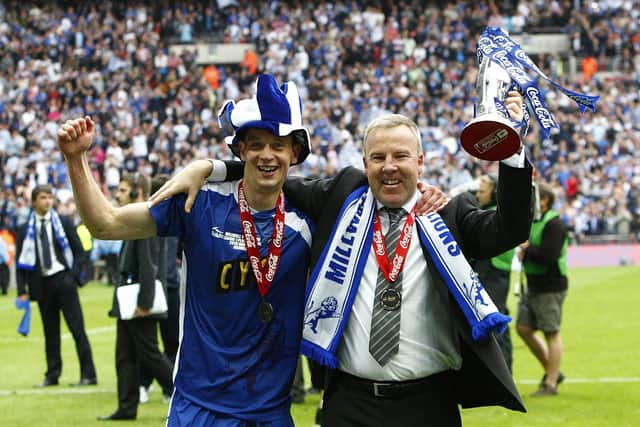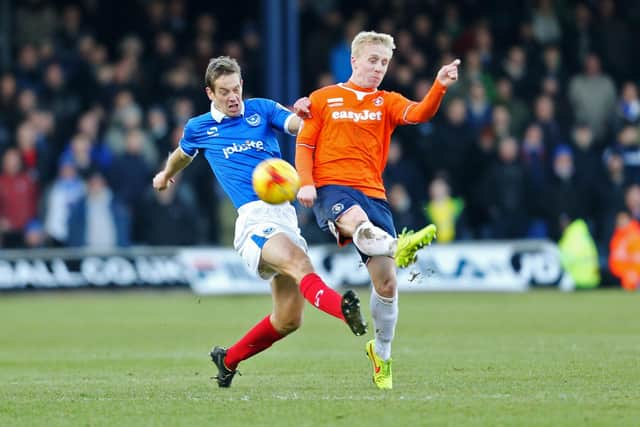'Kenny Jackett treated players differently - but it brought success': Ex-Portsmouth skipper lifts lids on unusual approach of former Wolves, Swansea and Millwall boss
and live on Freeview channel 276
That’s the verdict of Paul Robinson, who is convinced his former boss’ different management style was the driving force behind success at Millwall, Swansea, Wolves and, to an extent, Pompey.
Robinson spent a productive time under Jackett at Millwall, where he skippered them to the Championship after beating Swindon in the 2010 League One play-off final.
Advertisement
Hide AdAdvertisement
Hide AdAnd he provides a fascinating insight into the psyche of the boss who took the Blues to the Checkatrade Trophy and two League One play-off semi-finals.
Robinson told The News: ‘I had a good relationship with Kenny. What you do see with him, though, is he doesn’t necessarily get too close to his players.
‘Earlier in his career, I think he learnt the lesson that to make decisions on players, you have to do it from a standpoint where you’re judging their playing ability. Sometimes if you get too close to players, it can affect your judgement.
Advertisement
Hide AdAdvertisement
Hide Ad‘He kept players at arm’s length. Basically, you knew you were doing all right with Kenny if you were still in the team, that’s how it worked.


‘Every manager has their own style. Take Harry Redknapp’s style of man management. I wouldn't say you would necessarily credit him with total tactical acumen, but he was good at getting players in and getting the best out of them.
‘Kenny’s style has worked pretty well for him in his managerial career, but he’s also an incredibly hard worker, who simplifies things. That’s probably his best attribute.
‘Instructions can be overcomplicated, but he was really good at knowing exactly what was required and approaching things very simply to get the best out of players.
Advertisement
Hide AdAdvertisement
Hide Ad‘Players knew where they were and where they stood with Kenny. He’s a very good coach and very good at organising his teams.’


As a coach, he saw a different side to Jackett in a backroom team also consisting of assistant Joe Gallen and first-team coach Jake Wigley for the 2018-19 season.
And, having crossed the divide, Robinson moved from Fratton Park a year later to join Millwall Under-23s.
The 41-year-old added: ‘While Kenny would keep players at arm’s length, Joe was very emotionally intelligent and good at filling in the gaps, keeping the players on side. As a combination they worked incredibly well.
Advertisement
Hide AdAdvertisement
Hide Ad‘When I worked as a coach, Kenny was different. Don’t get me wrong, he’d still be demanding of his staff as well as the players, but you would see a slightly more relaxed side to him at certain times, which I don’t think players necessarily always see.


‘He cares about people, he has that nature about him, but part of his professional approach is he doesn’t always show that outwardly.’
